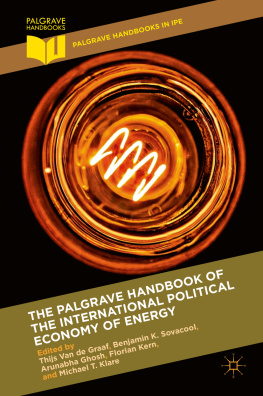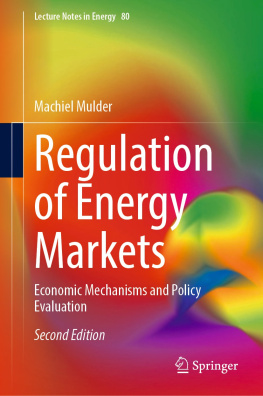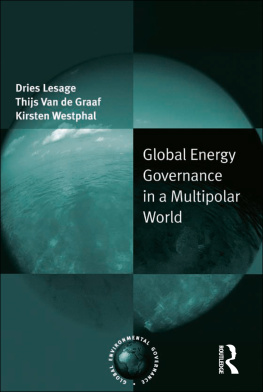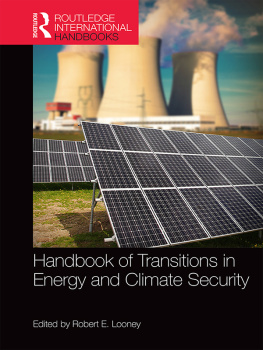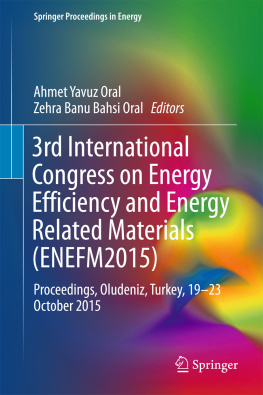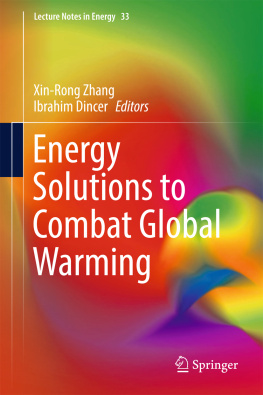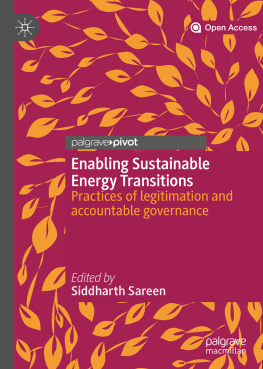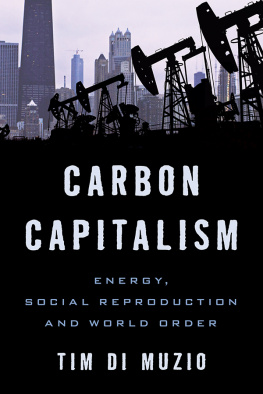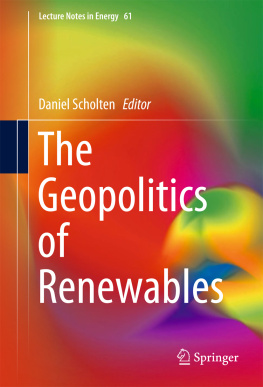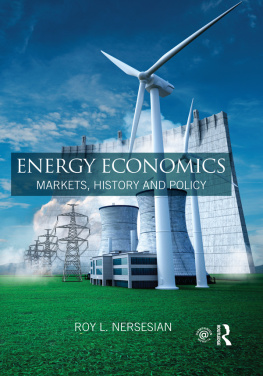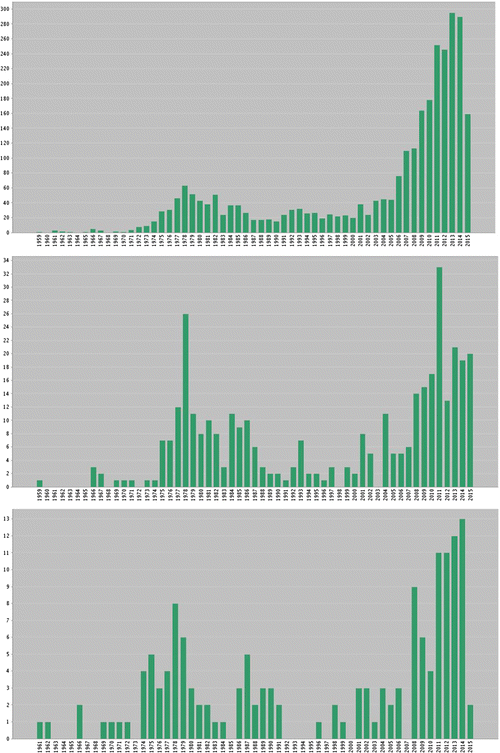1. States, Markets, and Institutions: Integrating International Political Economy and Global Energy Politics
Perhaps not since the 1970s has energy policy, technology, and security been so intensely discussed as today. Whether it is the race for energy resources in the Arctic, roller-coaster oil prices, the transition toward low carbon sources of energy, or concerns over nuclear safety, energy continues to make international headlines. Todays pressing energy challenges have opened up an incredibly vast research agenda. Sadly, political scientists and other social scientists have lagged behind their colleagues from science, engineering, and economics in addressing these issues. While some researchers directed their focus to energy matters and, especially, oil during the turbulent era of the oil shocks, the attention was short-lived. Only recently, after two decades of relative neglect, have political scientists began to rediscover energy as a major area of inquiry (Hughes and Lipscy ). Given the sheer magnitude, social pervasiveness, policy salience, and long-term nature of todays energy problems, their interest is likely to persist.
The intermittent attention to the international energy sector has important consequences for new scholars who want to venture into this domain. In contrast to the strong research traditions in international trade, security, and the environment, there is a deplorable paucity of peer-reviewed studies on the international world of energy. There is no established set of theories and concepts to which students can turn to interpret the global politics of energy. This is especially troubling given the centrality of energy policy in efforts to slow the pace of climate change. Writing in 1987, Ernest Wilson noted that, although no other single issue is so emblazoned on the public mind as a symbol of the age [as energy], no other issue has proven so resistant to conceptual rigor and theoretical development (Wilson , p. 128) is as valid today as it was in the late 1980s.
In searching for an analytic framework to study the changing world of energy, the field of International Political Economy (IPE) has much to offer.
This handbook aims to bring energy into IPE again, heeding the calls that have recently been made for an IPE of energy research agenda (Keating et al. , p. 82) also noted that energy issues seem ripe to reorder the international political economy in ways that we as a field have not adequately analyzed. IPE offers a powerful framework for analysis upon which scholars of energy politics can build. Energy, in turn, offers a rich but largely unexplored testing ground for insights from IPE. In the next section, we will explore the current state of energy-related social science research in order to set the scene, before turning more directly to IPE and its relation with energy issues.
The Rediscovery of Energy Policy and Politics by Social Scientists
Research on energy policy has long been dominated by the classic paradigms of natural sciences and economics, with social scientists playing second fiddle (Sovacool ). Conversely, energy constitutes one of the worlds foremost public policy challenges that social scientists in general, and political scientists in particular, cannot afford to ignore.
The same reasoning applies, mutatis mutandis, to climate policy. The International Panel on Climate Change (IPCC) has barely engaged with social sciences disciplines. Just one branch of the social scienceseconomicshas had a major voice in the IPCCs assessment process. Yet, as David Victor compellingly argues, social scientists can help to provide answers to questions that are key to effective climate policy, including: which countries will bear the costs of climate change; schemes for allocating the burden of cutting emissions; the design of international agreements; how voters respond to information about climate policy; and whether countries will go to war over climate-related stress (Victor
Fortunately, energy seems to be coming back in vogue among social scientists. The revival of interest in energy matters after two decades of relative neglect is illustrated in Fig. , which shows the numbers of peer-reviewed articles on energy policy or energy politics since the 1960s, as indexed in the Web of Science. More precisely, it depicts the number of published articles on energy in the categories of social science ( panel 1 ), political science ( panel 2 ), and international relations (IR) ( panel 3 ). While these panels have not been corrected for the fact that peer-reviewed publications have increased in general, they clearly illustrate that the first burst of interest in energy policy and politics occurred in the wake of the first oil shock. Yet, interest for energy issues in all three categories soon waned and during the 1990s, a period of very low oil prices, energy was mostly a fringe issue in these disciplines. Starting around 2001, and accelerating after 2008, energy issues resurfaced on the radar screen of social scientists, political scientists, and IR specialists.
Fig. 1.1
Peer-reviewed articles on energy policy or politics since 1961
After the first wave of energy research, an authoritative review essay came to the harsh conclusion that there is little if any sustained intellectual give-and-take in the field of international energy policy studies over the most appropriate ways to analyze the phenomenon (Wilson ). In and of itself, this need not be a problem. The role of geography (markets, raw materials, shipping lanes, ports, etc.) is certainly important to understand global energy politics. Scholars of the geopolitics of energy can also fall back on a rich tradition that goes back to the pioneers in geopolitical thinking, such as Halford Mackinder, Alfred Thayer Mahan, and Nicholas J. Spykman. The problem, however, is that many political scientists and IR theorists still live in a state-centric world in which states are the primary actors and their diplomatic/military interactions are believed to be what matters most. They cannot conceive of a far more complex energy world in which states, national oil companies (NOCs), corporations, consumers/citizens, local energy cooperatives, and markets all play a pivotal role.
The dominance of geopolitical frames in public policy debates on energy has been criticized, particularly in recent years. Goldthau and Witte (, p. 889).
It is thus fair to conclude that the energy literature is split in geopolitical (realist) and liberal institutionalist accounts. While the former privileges the analysis of political and security aspects of interstate energy relations, the latter gives primacy to transnational processes, markets, and institutions. Only a handful of analyses have truly engaged with the broader theoretical literature that provides the backdrop for these respective accounts. Even fewer studies have tried to merge political and economic factors in an explicit theoretical framework of international energy relations (Keating et al. ).

